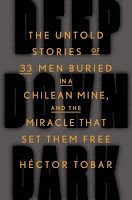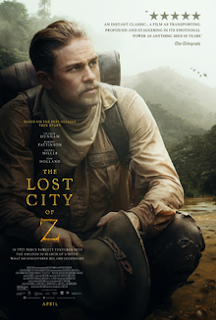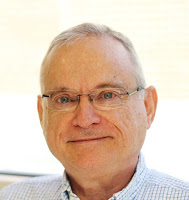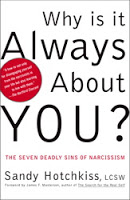
We’ve witnessed several new products come to market in the past few months; it’s pretty astounding, given that years went by without any new products. You’ve probably heard about others that are in clinical trials. What does that mean, exactly?
The FDA requires that new drugs and treatments be tested for safety, and also to demonstrate that they effectively treat the disorder or disease for which they are being developed. Drugs always start with a
phase I clinical trial, and then may move to phase II and phase III trials. If a drug is found unsafe or ineffective at any stage, then the clinical trial will be ended, and research on the drug will be either modified or abandoned.
Phase I: After a new drug or treatment is initially tested on animals, researchers test it on a small group of people (20–80) to evaluate safety, determine the safe dosage range, and identify side effects.
Phase II: If a drug or treatment appears safe at the end of the phase I trial, researchers give it to a larger group of people (100–300) to evaluate its effectiveness in patients, and to further assess safety.
Phase III: At this stage, the drug or treatment is given to an even larger group of people (1,000–3,000) to confirm effectiveness over a broad range of patients, monitor side effects, compare to commonly used treatments, and collect information to promote safe use. For rare disorders such as hemophilia, it’s almost impossible to enroll 1,000 patients for a clinical trial. In these cases, the FDA will approve
phase II or III trials with much smaller populations.
Phase IV: Post-marketing studies provide more information, including the drug or treatment’s risks, benefits, and best use.
Clinical trials for new bleeding disorder products can take place only when patients volunteer to be in them. This may seem risky, trying a new product that hasn’t been FDA-approved yet. Yet you can participate in a clinical trial, to help research, to take advantage of a new product that is needed, or simply for free factor. You’ll need to speak with your HTC about joining but k
now as much as possible about the clinical trial you are interested in,
and feel comfortable asking your healthcare team
about it. Use these questions as a guide:
• What is the purpose of the trial?
• Who is going to be in the trial?
• Why do researchers believe the experimental treatment being tested may be effective?
• Has this treatment been tested before?
• What kinds of tests and experimental treatments are involved?
• How do the possible risks, side effects, and benefits compare with my current treatment?
• How might this trial affect my daily life?
• How long will the trial last?
• Will hospitalization be required?
• Who will pay for the experimental treatment?
• Will I be reimbursed for other expenses?
• What type of long-term follow-up care is part of this trial?
• How will I know that the experimental treatment is working?
• What happens if I am harmed by the trial?
• Who will be in charge of my care?
Patients who volunteer to be in clinical trials are truly heroes and trailblazers. Perhaps you will be one of them someday!
Adapted from clinicaltrials.gov/ct2/info/understand
 Great Book I Just Read
Great Book I Just Read
Deep Down Dark: The Untold Stories of 33 Men Buried in a Chilean Mine, and the Miracle That Set Them Free [Kindle]
Hector Tobar
Astounding survival story of the 33 Chilean miners trapped over 1,000 feet underground for 69 days. Tobar skillfully introduces each man, his home life, aspirations, character flaws… all which would impact each’s reaction and perspective during their ungodly entombment. As in many crises, the positional leader does not always become the situational leader. This is as much a story of survival as it is leadership. Their time underground is gut-wretchedly and vividly portrayed. It seems a true miracle that they survived. The efforts to help the men spread internationally, and forever changed the Chilean mine industry. Five/five stars. (The movie “The 33” is good but not nearly as good as the book)
 I recall watching the movie “The Lost City of Z” this summer, about Percy Fawcett, a British soldier turned explorer who several times went deep into the heart of the Amazon to locate what he thought would be Eldorado, the city of gold. The movie clearly showed what he gave up for years at a time: beautiful, intelligent wife, three adorable children, a home, relationships.
I recall watching the movie “The Lost City of Z” this summer, about Percy Fawcett, a British soldier turned explorer who several times went deep into the heart of the Amazon to locate what he thought would be Eldorado, the city of gold. The movie clearly showed what he gave up for years at a time: beautiful, intelligent wife, three adorable children, a home, relationships.

 And one of our popular advocates in the community on Facebook wrote: “He gave his life so that we may see better treatment… Please think carefully and fully understand the risks entailed when your HTCs ask you to join a study…If you ever find someone pushing you to participate in a drug study, pay attention to their motives… Thank you to whoever it was that lost their life in this drug study.”
And one of our popular advocates in the community on Facebook wrote: “He gave his life so that we may see better treatment… Please think carefully and fully understand the risks entailed when your HTCs ask you to join a study…If you ever find someone pushing you to participate in a drug study, pay attention to their motives… Thank you to whoever it was that lost their life in this drug study.”


